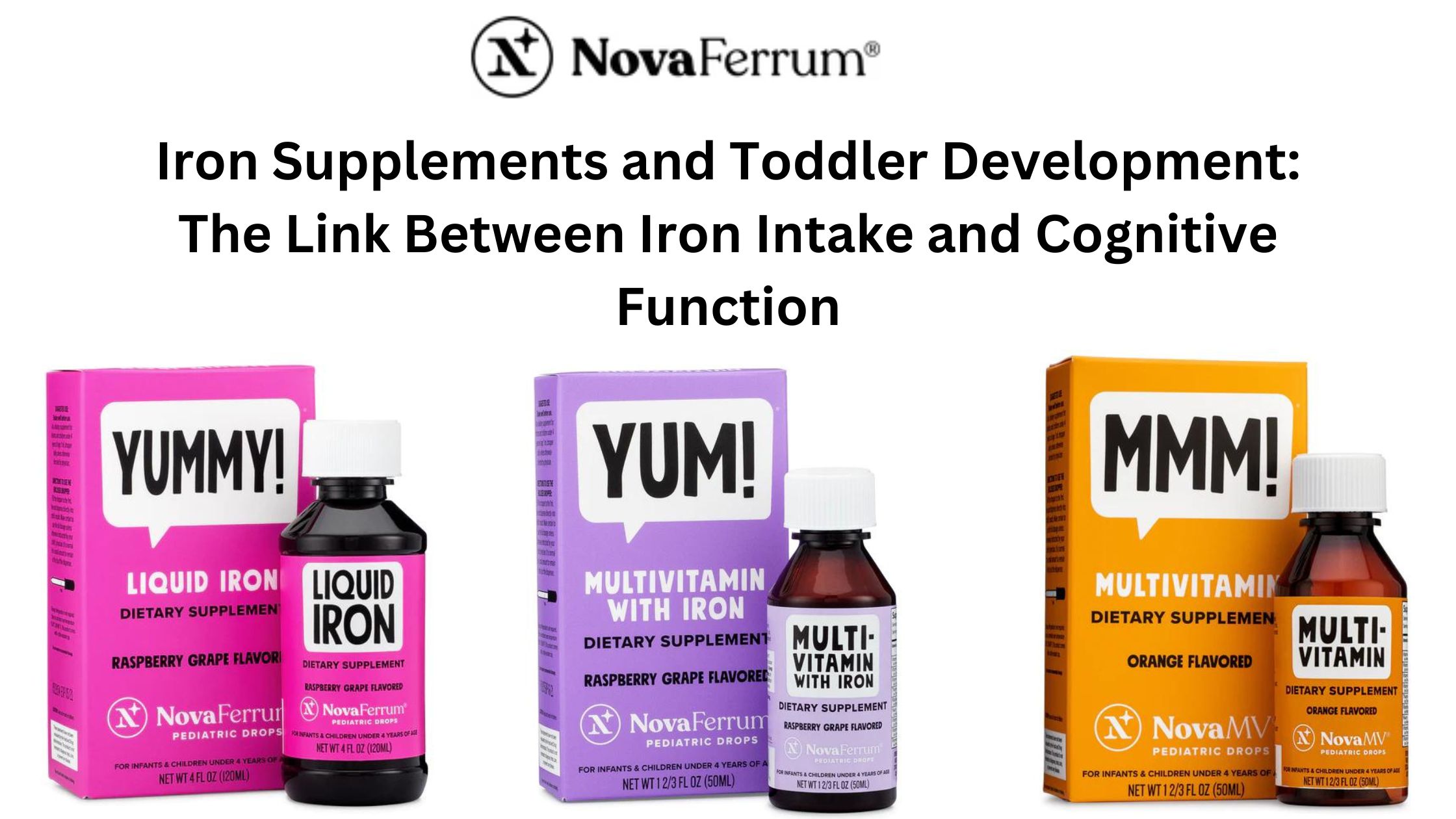
Iron is an essential mineral that plays a critical role in many physiological processes, including cognitive development and the function of the brain. Iron is necessary for the production of hemoglobin, which carries oxygen to the brain and other organs, and for the metabolism of neurotransmitters, which are chemicals that transmit signals in the brain. Adequate iron intake is especially crucial during periods of rapid growth and development, such as infancy, childhood, and adolescence.
Iron deficiency is one of the most common nutritional deficiencies worldwide, and it is estimated that approximately 40% of children aged 6 months to 5 years are anemic. Iron deficiency can lead to a range of adverse health outcomes, including impaired cognitive and motor development, decreased immunity, and reduced work capacity in adults. However, iron supplements for toddlers can help. In this article, we will explore the link between iron supplements and toddler development, specifically in relation to cognitive function.

Cognitive Function and Iron Intake
Numerous studies have demonstrated a significant association between iron intake and cognitive function. Iron plays an essential role in the development of the brain, and studies have shown that iron deficiency during early childhood can lead to long-term effects on cognitive function. Iron is required for the production of myelin, a fatty substance that surrounds nerve fibers and facilitates the transmission of signals between nerve cells in the brain. Myelin is critical for the proper functioning of the brain, and a lack of iron can lead to impaired myelination, which can negatively affect cognitive and motor development.
Iron deficiency anemia, the most severe form of iron deficiency, is associated with reduced cognitive function, including memory, attention, and problem-solving abilities. Iron deficiency anemia in infancy and early childhood has been linked to lower IQ scores and delayed development of language, motor skills, and social-emotional functioning.
Iron Supplements and Toddler Development
Iron supplements for toddlers are often recommended as a treatment for iron deficiency anemia. The American Academy of Pediatrics recommends iron supplements for all infants and children at risk of iron deficiency anemia, including those who are exclusively breastfed beyond 4 months of age, those who consume less than 1 liter of iron-fortified formula per day, and those who have a low intake of iron-rich foods.
Several studies have investigated the effects of iron supplementation on cognitive function in children. A meta-analysis of 25 randomized controlled trials involving over 3,000 children found that iron supplementation improved cognitive function, including attention, memory, and learning, in children with iron deficiency anemia. The benefits of iron supplementation were most pronounced in children who were iron deficient at baseline.
In addition to improving cognitive function, iron supplementation has been shown to have a positive impact on other aspects of toddler development. Iron supplementation in infancy has been associated with improved motor development, including sitting, crawling, and standing, as well as better behavioral and emotional regulation.
Choosing the Right Iron Supplement
When it comes to choosing an iron supplement for your toddler, there are several factors to consider. Iron supplements are available in different forms, including liquid drops, chewable tablets, and gummies. Liquid drops are often recommended for infants and young children who have difficulty swallowing pills or tablets. Chewable tablets and gummies may be more appealing to older children but may contain added sugars or artificial flavors.
It is important to choose an iron supplement that is appropriate for your child’s age and weight. Too much iron can be toxic and cause serious health problems, so it is essential to follow the recommended dosage and not exceed it. Your healthcare provider can help you determine the appropriate dose for your child based on their age, weight, and iron status.
Here are some general tips to keep in mind when choosing an iron supplement for your toddler:
- Look for a supplement that is specifically designed for toddlers and contains the appropriate amount of iron for their age and weight.
- Choose a supplement that is easy for your toddler to swallow or can be mixed with food or drink.
- Read the label carefully to ensure that the supplement is free from any potential allergens or harmful ingredients.
- Consider a liquid supplement, as it can be easier to administer to a toddler who may not be able to swallow pills.
- Always speak to your child’s pediatrician before giving them any supplements, as they can provide guidance on the appropriate dosage and whether it’s necessary in the first place.
Conclusion
Iron is an essential mineral that plays a critical role in cognitive development and function. Iron deficiency is a common nutritional deficiency in toddlers and can have long-lasting effects on cognitive function and motor development. Therefore, iron supplements for toddlers are often recommended as a treatment.
